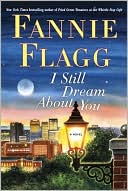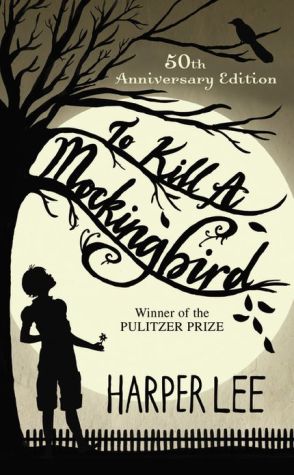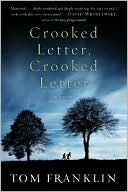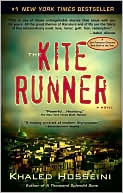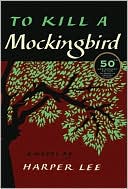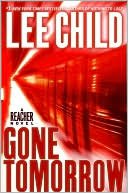A Mercy
"In the 1680s the slave trade in the Americas is still in its infancy. Jacob Vaark is an Anglo-Dutch trader and adventurer, with a small holding in the harsh North. Despite his distaste for dealing in flesh, he takes a small slave girl in part payment for a bad debt from a plantation owner in Catholic Maryland. This is Florens, who can read and write and might be useful on his farm. Rejected by her mother, Florens looks for love, first from Lina, an older servant woman at her new master's...
Search in google:
A powerful tragedy distilled into a jewel of a masterpiece by the Nobel Prize winning author of Beloved and, almost like a prelude to that story, set two centuries earlier.In the 1680s the slave trade was still in its infancy. In the Americas, virulent religious and class divisions, prejudice and oppression were rife, providing the fertile soil in which slavery and race hatred were planted and took root.Jacob is an Anglo-Dutch trader and adventurer, with a small holding in the harsh north. Despite his distaste for dealing in flesh, he takes a small slave girl in part payment for a bad debt from a plantation owner in Catholic Maryland. This is Florens, with the hands of a slave and the feet of a Portuguese lady. Florens looks for love, first from Lina, an older servant woman at her new master s house, but later from a handsome blacksmith, an African, never enslaved.There are other voices: Lina, whose tribe was decimated by...The Barnes & Noble ReviewEarly American life was punishing. The scythe of sickness has never been sharper in this country, the fickleness of crops quite so lethal. Everyone involved in the "settlement" suffered, especially when smallpox epidemics scorched through towns and villages. In her meditatively hopeful A Mercy, set on a Virginia farm in the 1690s as pox rages like a fire, Toni Morrison reminds that in these horrific conditions the tenderness of humans could cross boundaries one might assume were unbreachable at the time.
Don't be afraid. My telling can't hurt you in spite of what I have done and I promise to lie quietly in the dark — weeping perhaps or occasionally seeing the blood once more — but I will never again unfold my limbs to rise up and bare teeth. I explain. You can think what I tell you a confession, if you like, but one full of curiosities familiar only in dreams and during those moments when a dog's profile plays in the steam of a kettle. Or when a corn-husk doll sitting on a shelf is soon splaying in the corner of a room and the wicked of how it got there is plain. Stranger things happen all the time everywhere. You know. I know you know. One question is who is responsible? Another is can you read? If a pea hen refuses to brood I read it quickly and, sure enough, that night I see a minha mãe standing hand in hand with her little boy, my shoes jamming the pocket of her apron. Other signs need more time to understand. Often there are too many signs, or a bright omen clouds up too fast. I sort them and try to recall, yet I know I am missing much, like not reading the garden snake crawling up to the door saddle to die. Let me start with what I know for certain.\ The beginning begins with the shoes. When a child I am never able to abide being barefoot and always beg for shoes, anybody's shoes, even on the hottest days. My mother, a minha mãe, is frowning, is angry at what she says are my prettify ways. Only bad women wear high heels. I am dangerous, she says, and wild but she relents and lets me wear the throwaway shoes from Senhora's house, pointy-toe, one raised heel broke, the other worn and a buckle on top. As a result, Lina says, my feet are useless, will always be too tender for life and never have the strong soles, tougher than leather, that life requires. Lina is correct. Florens, she says, it's 1690. Who else these days has the hands of a slave and the feet of a Portuguese lady? So when I set out to find you, she and Mistress give me Sir's boots that fit a man not a girl. They stuff them with hay and oily corn husks and tell me to hide the letter inside my stocking — no matter the itch of the sealing wax. I am lettered but I do not read what Mistress writes and Lina and Sorrow cannot. But I know what it means to say to any who stop me.\ My head is light with the confusion of two things, hunger for you and scare if I am lost. Nothing frights me more than this errand and nothing is more temptation. From the day you disappear I dream and plot. To learn where you are and how to be there. I want to run across the trail through the beech and white pine but I am asking myself which way? Who will tell me? Who lives in the wilderness between this farm and you and will they help me or harm me? What about the boneless bears in the valley? Remember? How when they move their pelts sway as though there is nothing underneath? Their smell belying their beauty, their eyes knowing us from when we are beasts also. You telling me that is why it is fatal to look them in the eye. They will approach, run to us to love and play which we misread and give back fear and anger. Giant birds also are nesting out there bigger than cows, Lina says, and not all natives are like her, she says, so watch out. A praying savage, neighbors call her, because she is once churchgoing yet she bathes herself every day and Christians never do. Underneath she wears bright blue beads and dances in secret at first light when the moon is small. More than fear of loving bears or birds bigger than cows, I fear pathless night. How, I wonder, can I find you in the dark? Now at last there is a way. I have orders. It is arranged. I will see your mouth and trail my fingers down. You will rest your chin in my hair again while I breathe into your shoulder in and out, in and out. I am happy the world is breaking open for us, yet its newness trembles me. To get to you I must leave the only home, the only people I know. Lina says from the state of my teeth I am maybe seven or eight when I am brought here. We boil wild plums for jam and cake eight times since then, so I must be sixteen. Before this place I spend my days picking okra and sweeping tobacco sheds, my nights on the floor of the cookhouse with a minha mãe. We are baptized and can have happiness when this life is done. The Reverend Father tells us that. Once every seven days we learn to read and write. We are forbidden to leave the place so the four of us hide near the marsh. My mother, me, her little boy and Reverend Father. He is forbidden to do this but he teaches us anyway watching out for wicked Virginians and Protestants who want to catch him. If they do he will be in prison or pay money or both. He has two books and a slate. We have sticks to draw through sand, pebbles to shape words on smooth flat rock. When the letters are memory we make whole words. I am faster than my mother and her baby boy is no good at all. Very quickly I can write from memory the Nicene Creed including all of the commas. Confession we tell not write as I am doing now. I forget almost all of it until now. I like talk. Lina talk, stone talk, even Sorrow talk. Best of all is your talk. At first when I am brought here I don't talk any word. All of what I hear is different from what words mean to a minha mãe and me. Lina's words say nothing I know. Nor Mistress's. Slowly a little talk is in my mouth and not on stone. Lina says the place of my talking on stone is Mary's Land where Sir does business. So that is where my mother and her baby boy are buried. Or will be if they ever decide to rest. Sleeping on the cookhouse floor with them is not as nice as sleeping in the broken sleigh with Lina. In cold weather we put planks around our part of the cowshed and wrap our arms together under pelts. We don't smell the cow flops because they are frozen and we are deep under fur. In summer if our hammocks are hit by mosquitoes Lina makes a cool place to sleep out of branches. You never like a hammock and prefer the ground even in rain when Sir offers you the storehouse. Sorrow no more sleeps near the fireplace. The men helping you, Will and Scully, never live the night here because their master does not allow it. You remember them, how they would not take orders from you until Sir makes them? He could do that since they are exchange for land under lease from Sir. Lina says Sir has a clever way of getting without giving. I know it is true because I see it forever and ever. Me watching, my mother listening, her baby boy on her hip. Senhor is not paying the whole amount he owes to Sir. Sir saying he will take instead the woman and the girl, not the baby boy and the debt is gone. A minha mãe begs no. Her baby boy is still at her breast. Take the girl, she says, my daughter, she says. Me. Me. Sir agrees and changes the balance due. As soon as tobacco leaf is hanging to dry Reverend Father takes me on a ferry, then a ketch, then a boat and bundles me between his boxes of books and food. The second day it becomes hurting cold and I am happy I have a cloak however thin. Reverend Father excuses himself to go elsewhere on the boat and tells me to stay exact where I am. A woman comes to me and says stand up. I do and she takes my cloak from my shoulders. Then my wooden shoes. She walks away. Reverend Father turns a pale red color when he returns and learns what happens. He rushes all about asking where and who but can find no answer. Finally he takes rags, strips of sailcloth lying about and wraps my feet. Now I am knowing that unlike with Senhor, priests are unlove here. A sailor spits into the sea when Reverend Father asks him for help. Reverend Father is the only kind man I ever see. When I arrive here I believe it is the place he warns against. The freezing in hell that comes before the everlasting fire where sinners bubble and singe forever. But the ice comes first, he says. And when I see knives of it hanging from the houses and trees and feel the white air burn my face I am certain the fire is coming. Then Lina smiles when she looks at me and wraps me for warmth. Mistress looks away. Nor is Sorrow happy to see me. She flaps her hand in front of her face as though bees are bothering her. She is ever strange and Lina says she is once more with child. Father still not clear and Sorrow does not say. Will and Scully laugh and deny. Lina believes it is Sir's. Says she has her reason for thinking so. When I ask what reason she says he is a man. Mistress says nothing. Neither do I. But I have a worry. Not because our work is more, but because mothers nursing greedy babies scare me. I know how their eyes go when they choose. How they raise them to look at me hard, saying something I cannot hear. Saying something important to me, but holding the little boy's hand.
\ From Barnes & NobleNobel Prize winner Toni Morrison's first novel in five years follows characters white and black, enslaved and free, as they attempt to find stability and love in the 17th-century American Colonies. At the center of the fiction is Florens, a youthful black woman who becomes chattel in a financial transaction gone wrong. As she attempts to cope with her predicament, she comes into contact with others also struggling to find a niche in the uncertainties of the New World. As in previous works, Morrison establishes the uniqueness of her characters by Rashomon-like devices of multiple perspectives on the same events.\ \ \ \ \ Ron Charles…a spellbinding companion to Beloved…Her old themes rise up in A Mercy like a fever dream: the horrible sacrifice a mother makes to protect her child, the deadly vanity of benevolent slaveholders, the abandonment of a past too painful to remember. But this is a smaller, more delicate novel, a fusion of mystery, history and longing that stands alongside Beloved as a unique triumph in Morrison's body of work…Morrison, who has written so powerfully of catastrophe, cruelty and horror, here adds to that song of tragedy equally thrilling chords of desire and wonder, which in their own way are no less tragic. Whereas Beloved ends with the cathartic exhaustion of an exorcism, A Mercy concludes with an ambiguous kind of prayer, redolent with possibility and yearning but inspired by despair. This rich little masterpiece is a welding of poetry and history and psychological acuity that you must not miss.\ —The Washington Post\ \ \ Michiko Kakutani…a small, plangent gem of a story that is, at once, a kind of prelude to Beloved and a variation on that earlier book's exploration of the personal costs of slavery…Set some 200 years before Beloved, A Mercy conjures up the beautiful, untamed, lawless world that was America in the 17th century with the same sort of lyrical, verdant prose that distinguished that earlier novel…Ms. Morrison has rediscovered an urgent, poetic voice that enables her to move back and forth with immediacy and ease between the worlds of history and myth, between ordinary daily life and the realm of fable.\ —The New York Times\ \ \ \ \ Publishers WeeklySome authors make mediocre readers, but Nobel Prize–winning Toni Morrison is certainly not among them. Her husky voice, lyrical rhythms and precise timing—especially of pauses within sentences or even phrases—give clarity and poignancy to her vivid metaphors and elegant prose. Set in the 1680s, this story tells of multiple forms of love and of slavery. Florens is a slave girl whose mother urges her sale to Jacob, a decent man, to save her from a rapist master. Florens feels abandoned and is finally betrayed by the lover she worships. Morrison holds the listener completely in thrall through her narrative, her characters, her language and her own fine reading. An enlightening interview with the author appears at the end. A Knopf hardcover (Reviews, Sept. 15). (Nov.)\ Copyright © Reed Business Information, a division of Reed Elsevier Inc. All rights reserved.\ \ \ \ \ Library JournalIn this prequel to Beloved, a Catholic plantation owner satisfies a debt by offering Anglo-Dutch trader Jacob Vaark a young slave girl-whose mother hopes she will find a better life. What follows is a tale of love, disease, and the brutality of slavery. (LJ10/15/08)\ \ —Ann Burns\ \ \ \ \ Kirkus ReviewsAbandonment, betrayal and loss are the somber themes of this latest exploration of America's morally compromised history from Morrison (Love, 2003, etc.). All the characters she sets down in the colonial landscape circa 1690 are bereft, none more evidently so than Florens, 16-year-old slave of Jacob Vaark and his wife Rebekka. Eight years earlier, Anglo-Dutch farmer and trader Jacob reluctantly took Florens in settlement of a debt from a Maryland landowner. Her own mother offered her-so as not to be traded with Florens' infant brother, the girl thinks. (The searing final monologue reveals it was not so simple.) Florens joined a household of misfits somewhere in the North. Jacob was a poor orphan who came to America to make a new start; Rebekka's parents essentially sold her to him to spare themselves her upkeep. The couple has shared love, but also sadness; all four of their offspring died in childhood. They take in others similarly devastated. Lina, raped by a "Europe," has been cast out by her Native American tribe. Mixed-race Sorrow survived a shipwreck only to be made pregnant by her rescuer, who handed her over to Jacob. Willard and Scully are indentured servants, farmed out to labor for Jacob by their contract holders, who keep fraudulently extending their time. Only the free African blacksmith who helps Jacob construct his fancy new house-and who catches Florens' love-starved eye-seems whole and self-sufficient, though he eventually falls prey to Florens' raging fear of abandonment. Morrison's point, made in a variety of often-melodramatic plot developments, is that America was founded on the involuntary servitude of blacks and whites, that the colonies are rife with people whobelong nowhere else and anxiously strive to find something to hold onto in the New World. Gorgeous language and powerful understanding of the darkest regions in the human heart compensate for the slightly schematic nature of the characters and the plot. Better seen as a lengthy prose poem than a novel, this allusive, elusive little gem adds its own shadowy luster to the Nobel laureate's shimmering body of work. First printing of 300,000. Book-of-the-Month Club main selection\ \ \ \ \ From the Publisher“A powerful tragedy distilled into a small masterpiece of the relationship between a mother and a daughter, difficult choices and future ramifications.”\ — National Post\ “Exquisite.”\ — The Vancouver Sun\ \ \ \ \ \ The Barnes & Noble ReviewEarly American life was punishing. The scythe of sickness has never been sharper in this country, the fickleness of crops quite so lethal. Everyone involved in the "settlement" suffered, especially when smallpox epidemics scorched through towns and villages. In her meditatively hopeful A Mercy, set on a Virginia farm in the 1690s as pox rages like a fire, Toni Morrison reminds that in these horrific conditions the tenderness of humans could cross boundaries one might assume were unbreachable at the time.\ Like her Pulitzer Prize–winning masterpiece, Beloved, this novel revolves around a mother's agonizing sacrifice. A Dutch trader named Jacob Vaark travels to a Virginia plantation to collect on a debt. Lacking funds, the borrower offers Vaark flesh -- a trade Vaark is disinclined to accept. Men whose fortunes rest upon the backs of forced labor are weak, he feels. But then a woman steps forward and pleads with him to accept her daughter. "Please, Senhor. Not me," she asks him. "Take her. Take my daughter."\ A Mercy could have taken a lurid turn here -- as in life it perhaps often did -- but Morrison steers her novel in a more unexpected direction. Vaark, we learn, is moved to accept the girl because he, too, was an orphan once. He remembered "well [orphans] and his own sad teeming in the markets, lanes, alleyways and ports of every region he traveled." The girl, whose name is Florens, is also not the first one he has taken in. If his wife's children continue to die shortly after their births, she might not be his last.\ The arrival of the girl on Vaark's farm immediately alters the ecology of relationships that have developed there. Lina, a Native American slave, takes Florens in and protects her. Sorrow, a hardworking foundling who has arrived in Vaark's care already raped and ill, becomes jealous of her preferred treatment. A blacksmith desires Florens; she reciprocates with a passion that is almost feral. In the end, after Vaark dies of the pox, his wife puts her life in Florens's black hands.\ As in so many Morrison novels, especially the later ones, readers must work to assemble this narrative. It unfolds out of order, piecemeal, alternating from character to character, some of whom, like Florens, speak directly to the reader. Others Morrison speaks for in her magisterial third person.\ It was William Faulkner who laid bare the possibilities of this storytelling method in The Sound and the Fury. Jolting the reader from character to character meant a narrative could arise in the background, within the relationships between its characters. Excepting Louise Erdrich, no American novelist has grasped the spooky logic of how to tell a story this way quite like Morrison.\ There are risks, however, to this narrative method, ones to which A Mercy falls prey dismayingly often. In the opening pages it is difficult to understand who is speaking, who is being observed by whom. One needs to read on to sort out such minor mysteries, but Morrison soon replaces them with new ones.\ Florens's sections, which address an offstage "you," like a love letter or lyric poem, describe a journey through the woods of some urgency. Is she escaping? Is she returning to her mother? Morrison doesn't unpack this enigma until the book is two-thirds done. To put these questions on hold in the mind while pushing deeper into A Mercy requires far more than suspending disbelief. It means the reader must have absolute faith in Morrison as a storyteller.\ She has certainly earned this trust. In Beloved and Song of Solomon she crafted unquestionable masterpieces about the bonds of motherhood. Love and Jazz evoked the fine line between passion's refining fire and its destructive blazes. In her characters' voices we often hear the singular sound of American language.\ Morrison is also -- one cannot say this often enough -- a beautiful writer. Like Michael Ondaatje, who possesses a similar disdain for linear narrative, Morrison understands that if she is going to make her readers travel sideways, it is only fair to give them lights to stumble by. "When the women faded," she writes in A Mercy, describing how ghosts come to visit Vaark's wife after she falls into a fever, "it was the moon that stared back like a worried friend in a sky the texture of a lady's ball gown."\ Before his wife took ill, Vaark decided to build himself a large mansion, an ominous act of hubris described through Lina's eyes: "That third and presumably final house that Sir insisted on building distorted sunlight and required the death of fifty trees." Vaark, who prided himself on living within the confines of nature, on not becoming a slave driver, couldn't help but overstep.\ What happens next -- disease spreading like wildfire, some of the farm being spared, some of it not -- feels like punishment for Vaark's presumption. But it's not a connection a reader easily makes (and not until finishing the book), since Morrison forces the reader to spend so much time sorting out the story, unraveling connections that needn't be so mysterious. Perfected in Beloved, used adeptly in Love and Jazz, Morrison's narrative braid here simply feels needlessly complex.\ It's an odd mistake in a novel that is, at the root, meant to be about shared burdens, about how there were many different forms of slavery at that time. Vaark's wife, for instance, travels to America to a husband she does not know, aboard a vessel not much nicer than the ships in which slaves were transported . Her father has essentially sold her to a stranger. Upon arrival, she shares something with many women at the time, even those of a different faith.\ "The promise and threat of men. Here, they agreed, was where security and risk lay.... Some, like Lina, who had experienced both deliverance and destruction at their hands, withdrew. Some, like Sorrow, who apparently was never coached by other females, became their play. Some like her shipmates fought them. Others, the pious, obeyed them. And a few, like herself, after a mutually loving relationship, became like children when the man was gone."\ In this sense, if A Mercy begins with a mother's agonizing sacrifice, it becomes a story because a man provides the act that gives the book its title. These were the gender dynamics of the time. As the story expands, slaves who are white, Native American, black, and emotionally bound pass this gesture back and forth. At a moment when America may be about to elect its first black president, Morrison has given us a fable about an America in which the divisions that almost became calcified were trumped by the basic human need for survival. It is a brief, bone-hard, magically affecting tale -- tangled, but powerful enough that it never has to ask the question: what if it had always been so? --John Freeman\ John Freeman's work has appeared in The Guardian and The Wall Street Journal and on NPR. He is completing a book on the tyranny of email for Scribner.\ \ \


